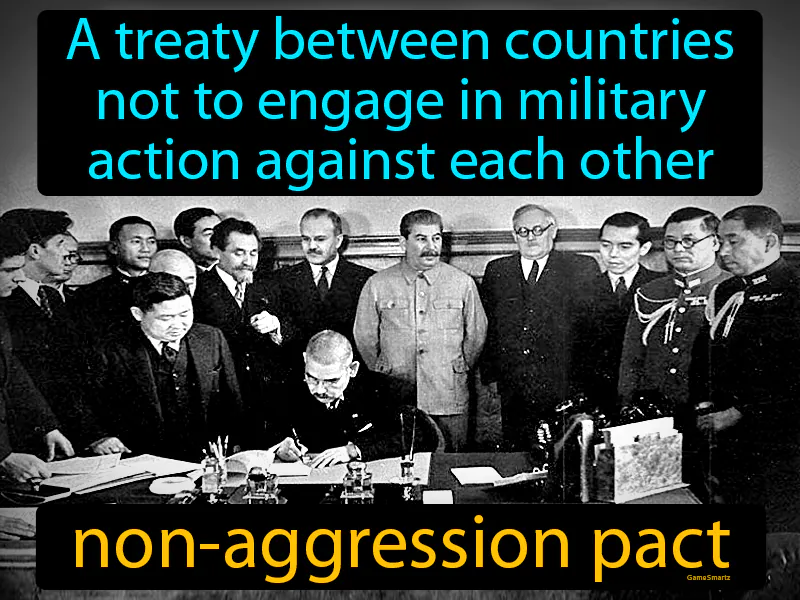Non-aggression Pact

In the years leading up to World War II, the non-aggression pact was famously exemplified by the Molotov-Ribbentrop Pact between Nazi Germany and the Soviet Union in 1939. This agreement ensured that the two countries would not attack each other, allowing them to focus on expanding their territories without interference. It was important because it temporarily prevented a two-front war for Germany and gave the Soviet Union time to build up their military. Today, the concept of a non-aggression pact can relate to personal agreements not to engage in conflict, such as two classmates deciding not to argue during a group project to maintain peace and achieve a common goal. It matters because it teaches the importance of cooperation and strategic planning, helping people focus on positive outcomes rather than conflicts.
Practice Version

Non-aggression Pact: A treaty between countries not to engage in military action against each other. Non-aggression pact. In history, a non-aggression pact is an agreement where countries promise not to attack each other.